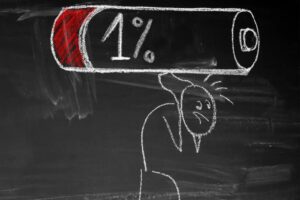
Aging – It’s Not Just About Gray Hair and Wrinkles
Aging is a complex journey filled with surprising twists and turns. While most people anticipate the obvious signs like wrinkles and gray hair, there are some truly bizarre indicators that silently whisper, “Hey, you’re getting older!” This article explores five weird signs of aging that might catch you completely off guard, offering both humor and insight into the fascinating world of getting older.
Understanding the Unexpected: Why Weird Aging Signs Matter
Before diving into our list, it’s crucial to understand that these signs are normal, natural, and often hilarious manifestations of the aging process. They’re not just random occurrences but scientifically backed indicators of how our bodies change over time.
- Your Musical Nostalgia Becomes Painfully Specific
When “Oldies” Aren’t Just Oldies Anymore
Remember when your parents would reminisce about music from decades past? Now, you’re doing the same thing, but with a twist. You don’t just remember songs; you remember exactly where you were, what you were wearing, and the precise emotional context of tracks from 20 or 30 years ago.

The Science Behind Musical Nostalgia Neurologically, music from your late teens and early twenties creates the strongest emotional imprints. As you age, these memories become more vivid and emotionally charged. You might find yourself getting inexplicably teary-eyed hearing a one-hit-wonder from 1995 or passionately explaining to younger generations why a particular band was “revolutionary.”
Signs this is happening to you:
- You start sentences with “Back in my day…”
- You can recall lyrics from obscure songs with crystal clarity
- Modern music sounds “too loud” or “doesn’t make sense”
- Your Body Becomes a Weather Forecasting Machine
When Joints Predict Rain Better Than meteorologists
Forget sophisticated doppler radars – your knees and joints have become nature’s most accurate weather prediction system. That old shoulder injury? It’ll start aching precisely 12 hours before a rainstorm, with an accuracy that would make professional meteorologists jealous.
The Physiological Explanation Changes in atmospheric pressure can cause tissues around joints to expand or contract, triggering pain responses. As we age, our joints become more sensitive to these fluctuations. What was once a minor ache transforms into a full-blown barometric pressure detector.
Indicators you’ve reached this stage:
- You can predict weather changes before the forecast
- Your joints feel like they have a personal vendetta against humidity
- You start understanding why older people talk about weather so much
- Sleep Becomes a Strategic Military Operation
The Complex Calculus of Perfect Sleep Conditions
Gone are the days of falling asleep anywhere, anytime. Now, sleep requires a carefully orchestrated series of conditions that would challenge NASA’s mission control. Room temperature, pillow positioning, white noise levels, and blanket weight become critical variables in your nightly rest strategy.

Neurological and Physiological Changes As we age, our sleep architecture changes. Circadian rhythms shift, melatonin production decreases, and suddenly, sleep becomes both more necessary and more elusive. You’re not just sleeping; you’re conducting a complex scientific experiment every single night.
Signs of advanced sleep strategizing:
- You own multiple types of pillows for different scenarios
- Your bedtime routine resembles a technical manual
- You can explain thread count’s impact on sleep quality in excruciating detail
- Your Metabolism Becomes a Mysterious Black Box
When Breathing Seemingly Equals Weight Gain
Remember when you could eat an entire pizza without consequences? Those days are long gone. Now, merely looking at a slice of cake can apparently add inches to your waistline. Your metabolism has transformed from a high-speed highway to a congested side street.
Metabolic Slow-Down Explained Muscle mass naturally decreases with age, causing metabolic rate to slow down. What used to be effortless weight management now requires military-level discipline and strategy. Your body has essentially declared metabolic warfare.
Metabolism transformation signs:
- Exercise now feels like negotiating with a stubborn bureaucracy
- Your body weight seems disconnected from actual food intake
- You understand why metabolism-boosting supplements are a billion-dollar industry
- Technology Becomes an Increasingly Confusing Landscape
When Keeping Up Feels Like Solving Quantum Physics
Suddenly, you find yourself asking younger people to explain memes, social media trends, and new app interfaces. What was once intuitive now feels like deciphering an alien language. Your technological learning curve has transformed from a smooth slope to a near-vertical climb.
Cognitive Adaptation Challenges While your fundamental intelligence remains intact, the rapid pace of technological change creates genuine cognitive dissonance. Each new update feels like being dropped into a foreign country without a translator.
Technology bewilderment indicators:
- You’ve uttered the phrase, “I don’t understand these kids today”
- Your smartphone feels more like a complex puzzle than a communication device
- You start appreciating “simpler times” unironically

Embracing the Weird, Wonderful World of Aging
Aging isn’t just about getting older – it’s about collecting a series of wonderfully weird experiences that make life rich, interesting, and occasionally hilarious. These signs aren’t limitations but badges of honor, showing the incredible journey your body and mind have undertaken.
Final Thoughts: Aging with Humor and Grace
While these signs might seem strange, they’re universal human experiences. Embrace them, laugh about them, and remember: getting older is a privilege denied to many.
Pro Tip: Keep a sense of humor. It’s the best anti-aging treatment available.
Disclaimer: This article is for informational purposes only and is not intended as medical advice. Always consult healthcare professionals for personalized guidance.
ALSO READ:
The Role of Beauty in Our Lives: Cultural, Psychological, and Industry Perspectives



